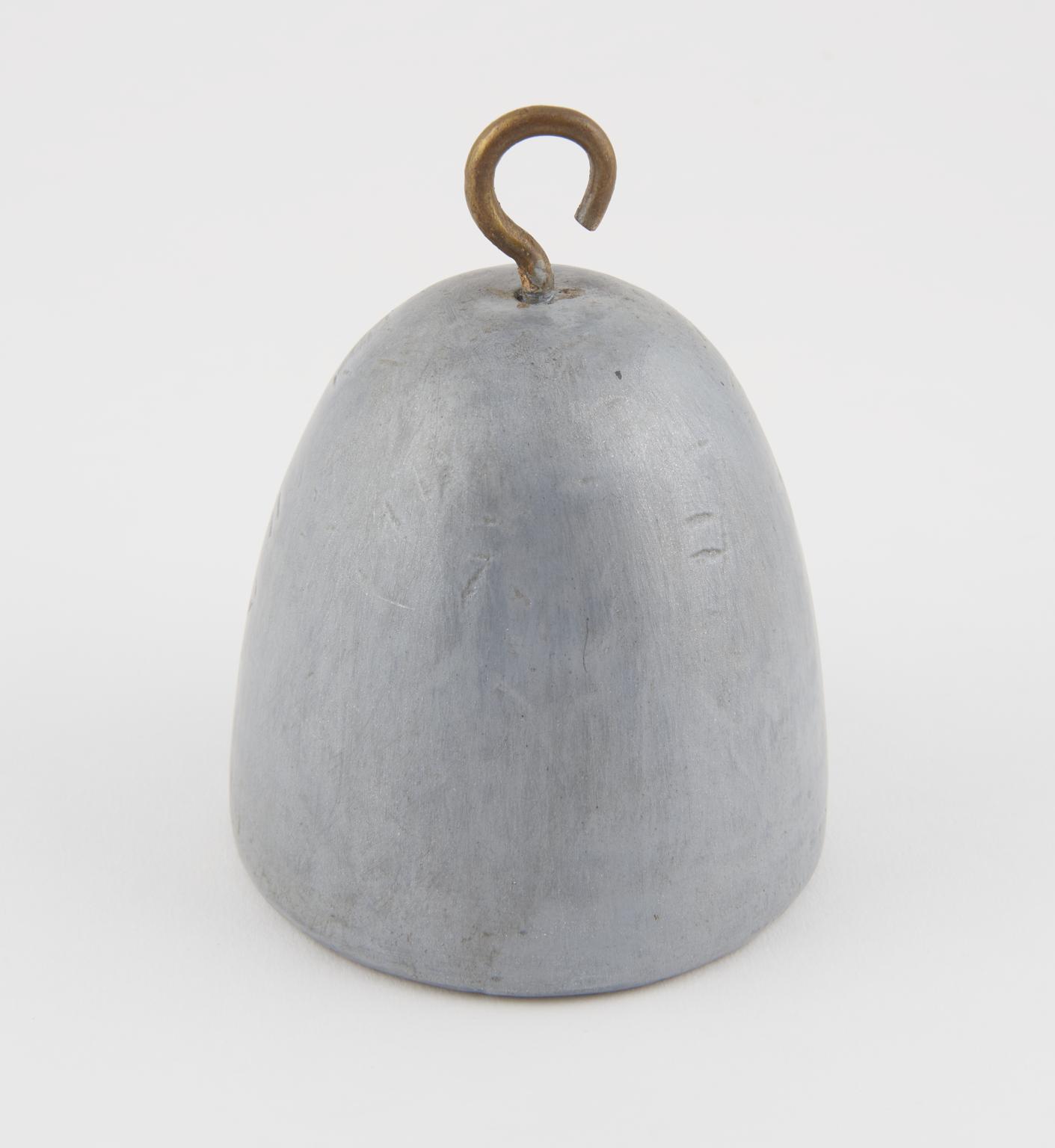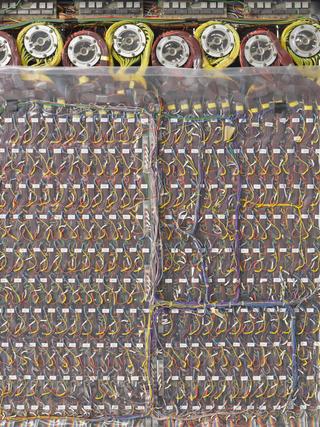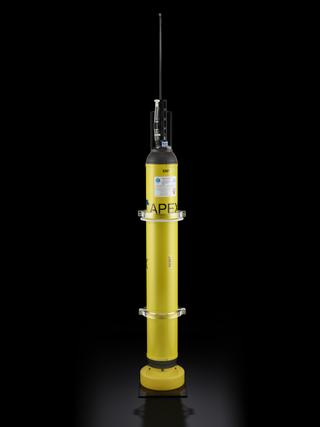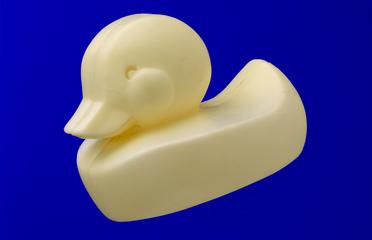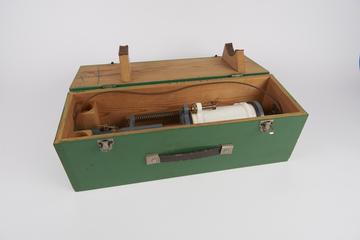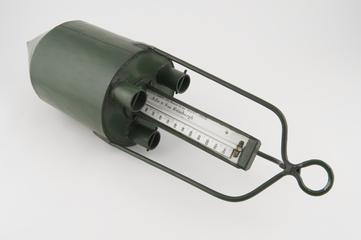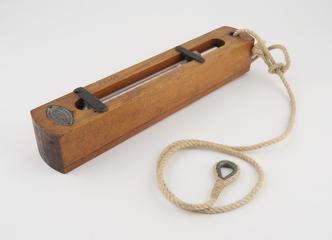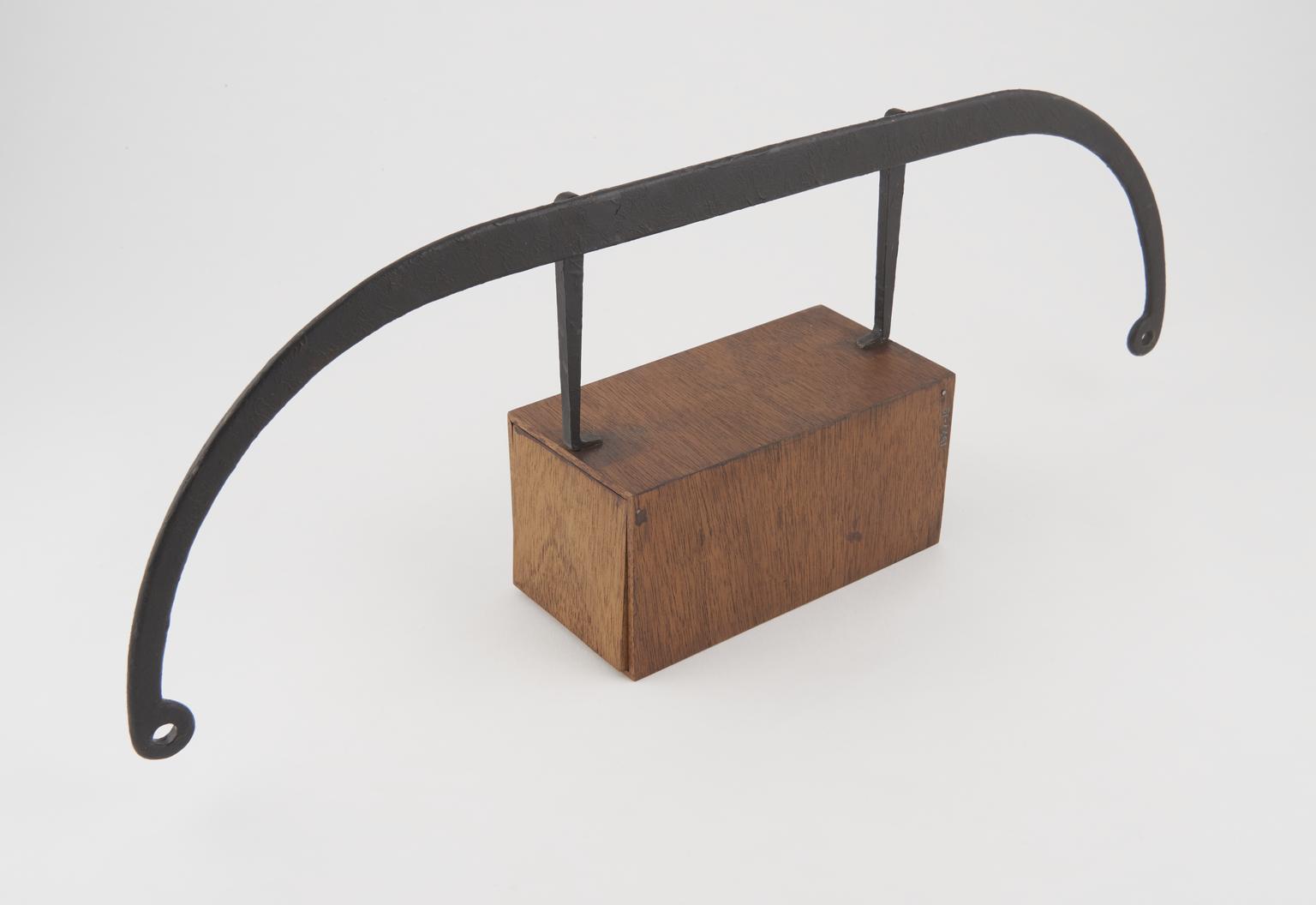
Sampling chamber from reconstruction of Robert Hooke's seawater sampler
Sampling chamber from reconstruction of water sampler for collecting seawater samples, from a design by Robert Hooke about 1665, made by the Science Museum, London, UK 1977.
More
The early Royal Society of London (founded 1660) encouraged marine science, and Curator of Experiments Robert Hooke (1635-1703) devised various instruments for studying and observing the ocean. Some of his designs were constructed but were only tested in the calm waters of the river where he demonstrated them to the society.
The sampler, or water bottle, was made of wood. Lowered on a line, the flow of water kept the end-valves open until the instrument was hauled up, bringing with it a sample from the depth reached. In practice, wood is totally unsuited to such apparatus; at quite small depths it becomes waterlogged, and the simple end-valves shown would not keep the sample uncontaminated on its passage to the surface.
- Materials:
- wood (unidentified)
- Object Number:
- 1977-19/1
- type:
- reconstruction
- Image ©
- The Board of Trustees of the Science Museum
